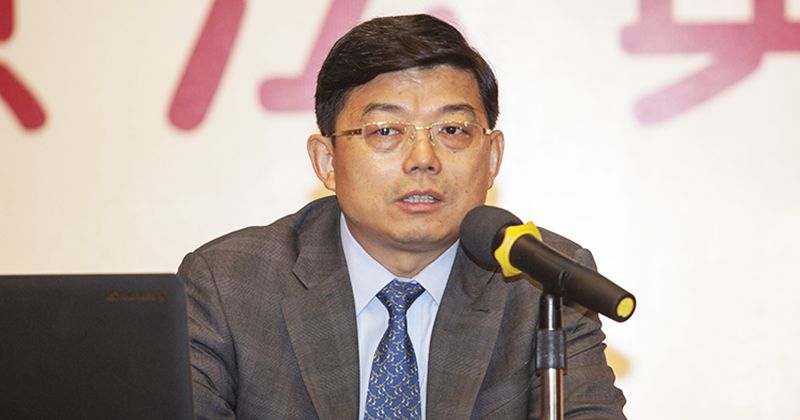A veteran democrat has questioned the timing of remarks made by a legal official of Beijing’s official organ in Hong Kong saying that the city’s democratic reform should not be of top priority.
Wang Zhenmin, the legal chief for the China Liaison Office, said at a forum in Beijing on Saturday that the next ten years is not the right time to restart political reform. He said the major cause of the rift in society was livelihood issues. “It’s not the case that the problems will be solved by political reform.”
“So many countries in the world spent their time on democracy, and what’s the result? The result is like the Middle East, like many places after attaining universal suffrage – civil wars and internal conflicts ensued, resulting in waves of refugees every day. This was all created by political reform and universal suffrage – do you want Hong Kong to be like that?” Wang said.

But Democratic Party lawmaker James To Kun-sun questioned Wang’s remarks, saying that universal suffrage was a goal set by Beijing itself.
“Does it mean that the Chinese Communist Party has abandoned its promise made in the Basic Law, in the Sino-British Joint Declaration to the whole world?” he said on a RTHK programme on Monday. “Why did he say it at this moment?”
To said Wang’s remarks may put pressure on Chief Executive-elect Carrie Lam, who was often said to be backed by the Liaison Office.
“Carrie Lam has yet to take office and meet with political parties – she has yet to take power and make her own judgements. She said she has to exercise her constitutional responsibility after being appointed by Beijing, but she would not say what it is,” To added.
To also dismissed Wang’s view that livelihood issues cannot be dealt with once political reform has started.

Lam won with 777 votes in March. The election committee was comprised of 1,194 election committee members, who were largely controlled by Beijing.
During her campaign, Lam did not commit to restarting political reform in her manifesto. Lam said she passed on Hongkongers’ concerns over democratic reform when she met with Xi earlier this month.
Lawmaker Holden Chow Ho-ding of the pro-Beijing DAB party, however, said there was no need to over-interpret Wang’s remarks.
“There is no need to be so pessimistic that there will not be political reform in the next five, ten years,” he said on the RTHK programme. Chow said it would not problematic to restart political reform if the new chief executive has the public’s trust.
“But I have to restate one thing – that the decision of the National People’s Congress still exists,” he added.

Beijing decided in 2014 that Hong Kong people could choose their leader with one-person-one-vote, but only after a nomination committee largely controlled by Beijing picks two to three candidates to face the public. The proposal sparked the 79-day pro-democracy Occupy protests.
A political reform package formed under the framework, led by then-chief secretary Lam, failed to pass at the Legislative Council in 2015.
Help from Beijing office
At the same forum in Beijing, Lau Nai-keung, a member of the Basic Law Committee under the National People’s Congress, said: “I dare say that nothing could be done by the chief executive and the Hong Kong government without the Liaison Office in Hong Kong.”

“How did Lam win 777 votes? Did she get them vote by vote, by campaigning? Without the help of the Liaison Office, would she be able to get them?”
Liaison Office director Zhang Xiaoming has dismissed claims made before the election that the office was securing votes for Lam.
